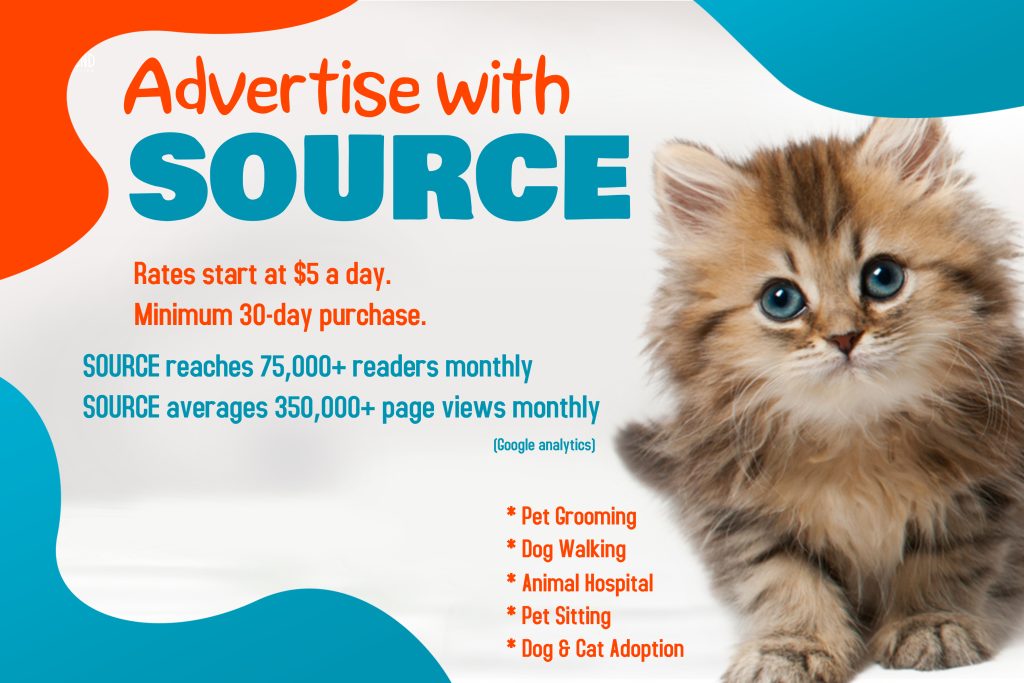In full transparency, the following is a media release from Sen. Ed Markey and Sen. Elizabeth Warren, who were elected by voters in the Commonwealth of Massachusetts to serve the state in Washington DC in the US Senate. Both are Democrats. (stock photo)
***
[broadstreet zone=”59982″]
WASHINGTON DC – Senator Edward J. Markey (D-Mass.) this week joined Senators Chris Van Hollen (D-Md.), Elizabeth Warren (D-Mass.), Bernie Sanders (I-Vt.), Tammy Baldwin (D-Wis.), and Cory Booker (D-N.J.) in a letter led by Senators Jeff Merkley (D-Ore.) and Tina Smith (D-Minn.) to AHIP, the trade association representing health insurance companies.
The letter expresses concerns about the continued practice of unlawfully charging individuals for pre-exposure prophylaxis (PrEP) medication and related care.
The Senators’ letter follows a Wednesday court ruling that further threatens affordable access to PrEP. As the legal process moves forward, the Senators pressed the health insurance industry to abide by current law to provide medication and ancillary services without charge.
[broadstreet zone=”59984″]
“It has been brought to our attention that enrollees in your members’ health plans continue to be charged for necessary medications and ancillary services—including provider consultations and laboratory services—contrary to law and additional federal guidance issued by the Departments of Labor, Health and Human Services, and Treasury,” wrote the Senators. “We write to express our deep concern with these erroneous and unlawful charges, and to request additional information on steps that AHIP is taking to ensure that its members adhere to federal law and ensure the PrEP drugs and the full scope of PrEP ancillary services are offered without charge to enrollees.”
A 2019 ruling by the U.S. Preventive Services Task Force (USPSTF) gave PrEP an “A” rating as prevention intervention for people at risk of Human Immunodeficiency Virus (HIV). This ruling brought PrEP under section 2713 of the Public Health Service Act, which requires insurance coverage for services or interventions that have been given an ““A” or “B” rating from the USPSTF.
Subsequent guidance, published by the Centers for Medicare & Medicaid Services (CMS) in July 2021, further clarified their ruling. Noting that “plans and issuers must cover PrEP consistent with the USPSTF recommendation without cost sharing,” the ruling goes on to clarify that PrEP is not just the medication, but also all of its necessary related services including testing, screening, and provider visits. Despite this ruling and subsequent clarification, individuals are still being wrongly charged out-of-pocket expenses relating to their PrEP care.
[broadstreet zone=”59945″]
“In light of this clear guidance from CMS, we are alarmed by continual reports that patients are routinely billed, either for payment-in-full or for cost-sharing practices, related to medically-appropriate medications and essential services,” they continued. “These costs can be daunting. HIV advocates and clinical workers across the county have reported that many patients are unaware that they do not have to pay out-of-pocket for PrEP and ancillary services, assuming that many of these costs are simply necessary for being on PrEP medication.”
The Senators’ letter highlights the inequities in PrEP uptake across communities at higher risk for HIV—including Black and Hispanic communities and transgender women—due to limited access to financial resources needed to cover costs of PrEP and associated medical visits and laboratory tests, among other factors.
[broadstreet zone=”58893″]
In light of these concerns, the lawmakers ask the following questions and request a response from AHIP within 30 days:
- What information or guidance is AHIP currently providing to support its members in ensuring that their health plans are compliant with federal regulations clarifying that PrEP and ancillary services should be available at no-cost to patients?
- What information and educational materials is AHIP recommending that its members supply to enrollees to ensure that patients know that PrEP, including its ancillary services, should be provided at no-cost to enrollees?
- How is AHIP working with laboratories and health care providers to ensure the accurate coding of appointments and services so that enrollees are not erroneously billed for these services?
- How is AHIP working with its partners to develop a full understanding of the scope of the issue, both in terms of the number of individuals impacted and the monetary impacts of erroneous bills?
- How is AHIP working with its members to resolve issues for beneficiaries who have been wrongfully charged for PrEP and associated services in an expeditious manner?
The letter is supported by PrEP4ALL, the HIV+Hepatitis Policy Institute, the Center for Health and Democracy, and NMAC.
[broadstreet zone=”58892″]
“Unfortunately we have documented dozens of cases of insurers still charging patients out-of-pocket fees for PrEP-related care, a year after CMS and the Department of Labor issued their guidance,” said Kenyon Farrow, Managing Director of Advocacy & Organizing with PrEP4ALL. “Ending the HIV epidemic will require us to ensure everyone with insurance be able to get PrEP services with no cost-sharing, as the rule intended. We applaud Sen. Merkley and Sen. Smith’s tireless advocacy on behalf of patients.”
“We appreciate Senators Merkley and Smith’s leadership and all their colleagues desire to ensure that the preventative service provisions of the Affordable Care Act are properly implemented. Private insurers must provide PrEP drugs and associated services without patient cost-sharing. We are receiving too many complaints from PrEP users that this is not always happening. We trust with this letter insurers will ensure full compliance,” said Carl Schmid, Executive Director of the HIV+Hepatitis Policy Institute.
“While appalling, it’s sadly not shocking to see Big Health Insurance wrongfully billing enrollees for medications and ancillary services as part of a PrEP regimen to prevent HIV, despite crystal clear guidance from the Departments of Health and Human Services, Labor, and Treasury not to do so,” said Wendell Potter, President of the Center for Health and Democracy. “We’re grateful for the leadership of Senators Merkley and Smith for sending this letter, underscoring their understanding of the effectiveness of PrEP and their compassion for those at risk and their families.”
[broadstreet zone=”59947″]
Read the full text of the letter HERE and below:
Dear Mr. Eyles:
We write today regarding recent reports of patients across the country receiving bills and charges from AHIP members for pre-exposure prophylaxis (PrEP) drugs that prevent HIV, along with necessary ancillary services, as part of the PrEP regimen[1]. It has been brought to our attention that enrollees in your members’ health plans continue to be charged for necessary medications and ancillary services—including provider consultations and laboratory services—contrary to law and additional federal guidance issued by the Departments of Labor, Health and Human Services, and Treasury. We write to express our deep concern with these erroneous and unlawful charges, and to request additional information on steps that AHIP is taking to ensure that its members adhere to federal law and ensure the PrEP drugs and the full scope of PrEP ancillary services are offered without charge to enrollees.
As you know, a 2019 ruling by the United States Preventive Services Task Force (USPSTF) gave PrEP an “A” rating as a prevention intervention for people at risk of HIV infection[2]. The Public Health Services Act (PHS Act) section 2713 states that non-grandfathered group health plans and health insurance issuers offering non-grandfathered group or individual health insurance coverage must provide coverage for, and must not impose any cost-sharing requirements, for services or interventions that have been given an “A” or “B” rating by the USPSTF[3].
[broadstreet zone=”59983″]
While this statutory requirement for payers remains the law of the land, the requirement has been further clarified in additional federal guidance, including in those issued by the Centers for Medicare & Medicaid Services (CMS) [4]. Indeed, in a July 2021 document published by CMS, the agency noted that “plans and issuers must cover PrEP consistent with the USPSTF recommendation without cost-sharing…” In its recommendation, the USPTF cites guidelines from the Centers for Disease Control and Prevention (CDC), stating that PrEP is a comprehensive intervention comprised of antiretroviral medication in addition to essential support services.
Indeed, CMS continued on to clarify that PrEP is not just the medication, but includes the full scope of essential medical services associated with the PrEP regimen, explicitly citing initial clinical assessments and ongoing monitoring of patients including HIV testing; hepatitis B and C testing; creatinine testing; sexually-transmitted infection (STI) testing and counseling, and other services essential to the efficacy of the PrEP regimen as outlined by the CDC guidelines for PrEP.

In light of this clear guidance from CMS, we are alarmed by continual reports that patients are routinely billed, either for payment-in-full or for cost-sharing practices, related to medically-appropriate medications and essential services. These costs can be daunting. HIV advocates and clinical workers across the county have reported that many patients are unaware that they do not have to pay out-of-pocket for PrEP and ancillary services, assuming that many of these costs are simply necessary for being on PrEP medication. In some cases, these patients can pay over $1,000 per year when federal law states that they should pay nothing. Consumers who attempt to challenge these illegal cost sharing charges with their plans routinely find that claims are turned over to collections, causing anxiety and stress, and in many cases, prompting individuals to discontinue PrEP.
The impact of these costs on patient access and public health more generally cannot be understated. Multiple academic studies have indicated that associated costs—including the costs of ancillary services—present a barrier to PrEP access in the United States[5], despite its incredible effectiveness of reducing the risk of HIV acquisition[6]. Inequities in PrEP uptake persist across communities at higher risk for HIV—including Black and Hispanic communities and transgender women—because of limited access to financial resources to cover costs of PrEP and associated medical visits and laboratory tests, among other factors[7].
While we recognize that partnerships with laboratories and health care providers, including accurate billing and coding, may present challenges, the statutory language of the PHSA section 2713 is clear in indicating that issuers, and issuers alone, are legally required to be compliant with providing coverage for PrEP, including the full scope of necessary related services, without cost-sharing.
[broadstreet zone=”59946″]
In light of these concerns, and the role we request responses to the following questions within 30 days of receipt of this letter:
- What information or guidance is AHIP currently providing to support its members in ensuring that their health plans are compliant with federal regulations clarifying that PrEP and ancillary services should be available at no-cost to patients?
- What information and educational materials is AHIP recommending that its members supply to enrollees to ensure that patients know that PrEP, including its ancillary services, should be provided at no-cost to enrollees?
- How is AHIP working with laboratories and health care providers to ensure the accurate coding of appointments and services so that enrollees are not erroneously billed for these services?
- How is AHIP working with its partners to develop a full understanding of the scope of the issue, both in terms of the number of individuals impacted and the monetary impacts of erroneous bills?
- How is AHIP working with its members to resolve issues for beneficiaries who have been wrongfully charged for PrEP and associated services in an expeditious manner?
Thank you again for your attention to this pressing matter impacting public health in our country.


